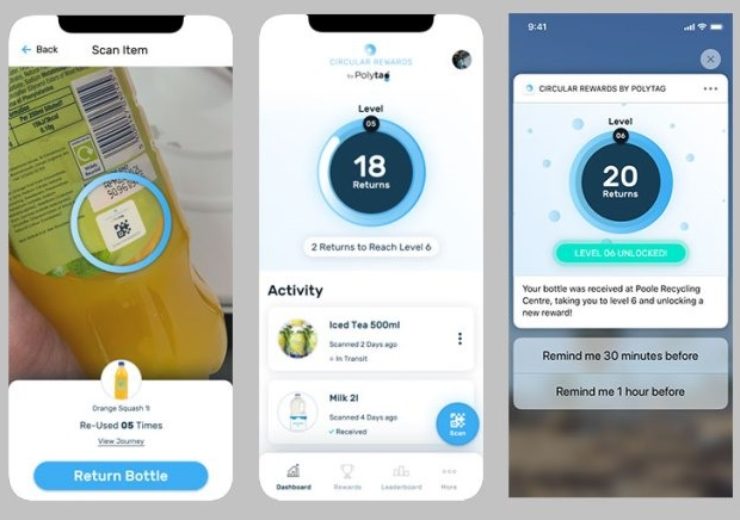The Polytag technology trial will involve 60 households across Wirral, Merseyside from 28 October and will continue for 40 days

Image: The Polytag technology uses specially developed printing process to tag each item of packaging with a unique PAC code at its point of manufacture. Photo: courtesy of Ecosurety.
A trial, funded by recycling compliance scheme Ecosurety, to assess the viability of a ‘tag & trace’ recycling technology has been launched.
The 40-day trial will test the viability of Polytag technology for the creation of a high- value plastic feedstock from consumer recycling waste.
Polytag, which is led by waste conversion specialists Econpro, is a multifaceted technology platform designed to help brands tag their packaging at the point of manufacture and trace it with the help of customers.
Launched across Wirral, Merseyside, the trial will evaluate the feasibility of the new recycling technology platform, which may help brands to move towards circular packaging waste economy.
The trial, which will involve 60 households, will enable Econpro to collect major insights from consumers on the usability of the Polytag technology platform and help to maximise the potential for a more circular recycling system.
Polytag platform will help brands recognise vital role that consumer plays in recycling process
The platform will help isolate packaging from the existing recycling waste stream and reprocess in batches with identical-grade and colour plastic.
Specially-developed printing process will be used by the Polytag technology to tag each item of packaging with a unique PAC code at its point of manufacture.
Later, the tag will be stored on a Polytag database until it is coupled with the same code that has been traced by the consumer.
The consumer tracing function will be enabled via the application of a Polytag mobile phone app, which allows consumers to scan the Polytag PAC codes themselves.
Upon scanning the code, the consumer will follow instructions provided via the app on how to clean and prepare the packaging for recycling, before making it returned to Polytag either via collection or drop-off at a designated Polytag collection point.
The packaging will be delivered to a Polytag MRF for reprocessing and producing high-grade Polytag pellets or granulate that can be returned directly to the producer for reuse in their packaging stream.
As per the current plans, Polytag-recycled plastic feedstock will be returned to brand packaging production plants for reuse and improve the circularity of the packaging lifecycle of a product.
Econpro CEO Phil Sutton said: “Only 45% of all plastic packaging is recycled here in the UK, and yet production is expected to increase to over a million tones by 2030.”
Polytag seeks to tackle the pressing environmental issue caused by plastic and other packaging by helping to build a more circular recycling system that maximises the value of the materials being used.”
In September this year, Swiss speciality chemicals company Clariant has partnered with pigment supplier Merck and resin producer SABIC to develop laser-marking technology and materials to improve for flexible packaging.
